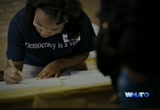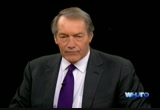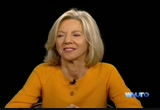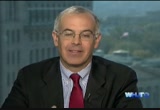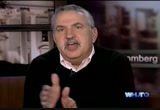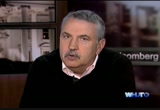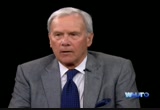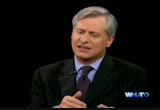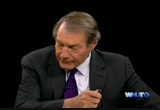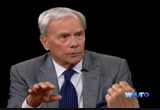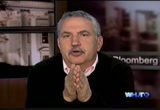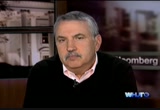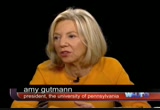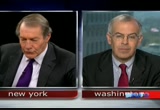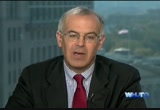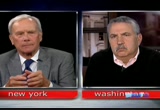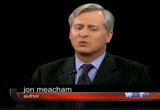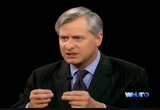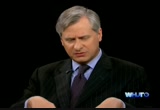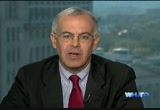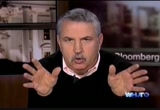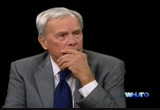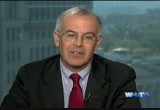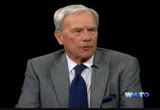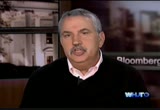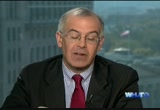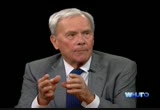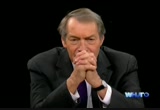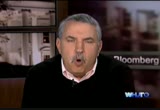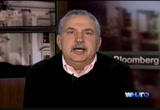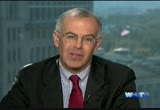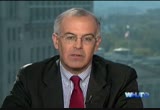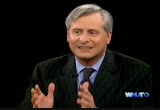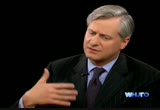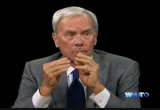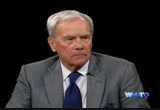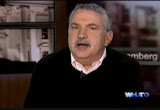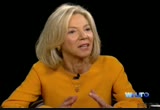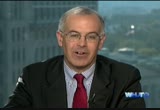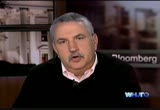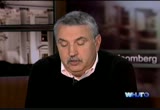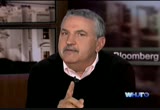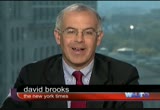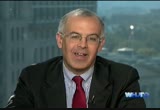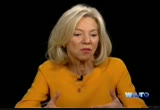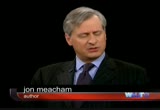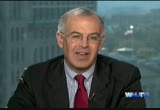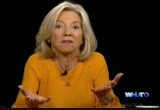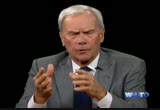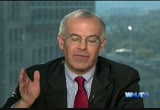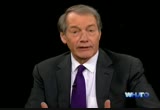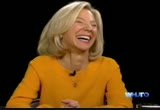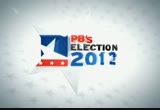tv Charlie Rose WHUT November 7, 2012 6:00am-7:00am EST
6:00 am
6:01 am
>> that future is out there! it is waiting for us! >> tonight, a special edition of charlie rose. >> rose: a politician thinks of the next election, a statesman of the next generation so says james free man clarke. while all the world focuses on the election results, e we want to raise this question: where is america 2012, 236 years after its birth, and where is it going? the challenge for the next administration are both immediate and deep. no great country has sustained its position without a strong economic foundation. the new president and new congress must deal with the fiscal cliff, partisan gridlock has prevented us from making the hard decisions about where we need to spend and where we need to cut and how we bridge a growing economic inequality. while we remain the richest country in the world, the global economic order is rebalancing. the application of american power is changing as we have seen in the response to the arab spring. old alliances need redefining. the pivot to the east demands
6:02 am
understanding between china and the united states and the realization that it is not a zero-sum game but also problems that transcend relationships among nations, questions of climate change, global health and the progress of science. science and technology are giving us extraordinary insight into who we are and how much we share. they have enormous power for both state and non-state actors. and always at the heart of a nation's strength is its ability to educate and press forward the frontier. these are issues not just for politicians but for all of us, including the president. and if there is one lesson, it's that if we can harness the capacity for diverse experiences, cooperation and understanding, then there's a possibility for renewed hope. so we continue this evening not with the question of who won the election but where do we go from here? where what is the great opportunity for the next four years? joining me, a remarkable group of people who have written and thought hard about the choices ahead. from washington, d.c., tom friedman, he is a columnist in for the times and cocoauthor of "that used to be us, how america
6:03 am
fell behind in the world it e invented" and david brooks of the "new york times," he is the author of "the social animal." joining me in new york, tom brokaw, a special correspondent for nbc news and the author of "the time of our lives" a conversation about america. and jon meacham, the executive editor of random house and the author of the forthcoming book "thomas jefferson, the art of power." finally joining us, amy gutman, president of the university of pennsylvania and chair of the president's commission on bioethics and the coauthor of "the spirit of compromise" why governing demands it and campaigning undermines it. i'm pleased to have each of them here for this conversation. we obviously don't know who the new president is and we come forward with the premise that whoever it is, these are the issues and the choices and the challenges that face him. i'll start with you. what is it this new president has to understand about america at this moment? >> well, i think this new
6:04 am
president is going to have to govern and governing in a polarized society which we have in a society which has tremendous problems, budgetary, economic, immigration, educational. the list goes on. governing is going to mean bipartisan deals. and so mario cuomo may have said that you campaign in poetry but you govern in prose. we've been campaigning and i think most of america would agree in fiction. it's not just -- it isn't attuned to nib's ears that anybody wants to hum. we've got to govern by -- this president has got to tell people there's going to be some sacrifice that everybody makes in order to get some gain and we need big deals here. >> rose: david, this is not likely to happen. suppose the president on november 7 calls you and says "i won, what do i do now?" >> what do you mean it's not
6:05 am
likely? (laughter) i'm sure that's the first call. so first of all, i'm very taken with amy's comment that we've been campaigning in fiction and i would say extremely short fiction. it's been small and short and the first thing i would do is say you have to draw a line between what we've been through and what we're about to go through. you have to make a clear statement that the election is passed, i'm going to talk in a very different way, i'm going to talk in a much bigger way. i'm going to say we've got three big problems, a debt problem, growth problem, inequality problem they cross cut against each other and we're going to face this cliff pretty soon and so i'm going to do what -- either what i didn't do or what president obama didn't do in the last four years, i'm going to lay out a plan. here it is. some people in my party won't be happy, some people in the other party won't be happy but some
6:06 am
will be intrigued in both parties so here's my plan, let's work on this starting with my framework. >> rose: tom? >> the morning after whoever wins the first thing i hope he does is call the leadership to the other side, make clear that we have some big hard things to do and we can only do them together. these are too big and hard for anybody to do alone. and i think the biggest and hard zest that we do need a grand bargain on debt, deficit and taxes. that it's phased in in an appropriate way at the proper scale. and at the same time we need to be a startup country again. there's no employees, charlie, without employers. and it seems to me that the next president has got to reach out to the other party for starters but also to the business, the innovation community to make clear that we're going to have a public/private partnership to make this truly startup nation again that's going to get
6:07 am
everybody in this country starting something so we can get more people back to work. because if we don't, if we continue doing what we've been doing, charlie, which is taunting the two most powerful forces on the planet, the market and mother nature at the same time and that's what we have been doing. we have basically been saying what you got, baby? what you got? that all you got? last week mother nature showed us what she got. and if we don't do anything in the economy the market's going to show us what it's got. >> rose: tom brokaw? >> i think we have to get beyond -- in our political culture beyond the politics of fear. this whole campaign is about der phiing the other side about if that person gets in your life is all over. we've been playing by the rules of the 20th century. we need to play by the rules of the 21st century. i agree with everything that's been said up to this point. the one step i would take beyond what david and tom said is that the morning after the election i would not just reach out to the other side but i would already have in place the private part
6:08 am
of what i think is the important component going forward, the public/private partnership in almost everything that we do so that you have to create a coalition outside of the beltway, from the academy, from business, from the think tanks that can help you put this all together and keep the pressure on capitol hill and keep the pressure on the agencies of government so that we can reform. i would say one more thing. the most successful enterprise we have in america today is located in silicon valley. they're changing in world everyday and we're all in awe of it. they have a continuing mantra, it is be disrunnive, challenge convention, find new ways of doing things. we said god this is just great we can't wait to be a part of it. then we're terrified about being disruptive or we just won't do there. >> rose: jon? >> churchill, our great friend once said -- >> rose: (laughs) >> he said the future is unknowable but the past should
6:09 am
give us hope. and i do think if you look back at two or three of the transformative presidents you find a couple lessons that endure. one is just being committed to some principal vision. it almost doesn't matter what it is. with president reagan it was we need to ask first what the private sector can do before the public sector. with president roosevelt it was we just have to get moving again and i think it that the new president-- whether it's the old president beginning anew or a new one-- they have to say this is the kind of country we want and be willing to depart from dogma at every point to get there. compromise should not be a dirty word. >> rose: nor should leadership. >> nor should followership. we are just -- the people are just as responsible. if politicians -- if we wanted to hear the truth, guess what they would be doing. they would be telling it. so it's -- the whole system here is, i think, culpable.
6:10 am
and my strong hope is that the american dream-- a phrase coined in 1931 by a historian named james trusslow adams is in its most significant danger since the great economic boom of the second world war and without the renewal of that then we are, in fact, going to lose our imperial status. >> rose: i'll ask all of you but begin with tom because he and i have talked about this before. is the country-- whether it's the dakotas where you came from or north carolina where i came-- different than the powers that be in terms of how it feels about where we are? >> yes. i just came back from the great plains. it's a religious holiday. it's pheasant hunting in south dakota. (laughter) so that's where i was. and i was just -- and i keep pretty close track of what's going on out there even though i've been gone for 50 years. one of the smartest people i know out there said "we're the future here." he said we're going to be able to keep young people here." they didn't do anything dumb. there were no subprime loans that went on.
6:11 am
they invested in their small cities. they've always had a good school system. and now commodities, agriculture are booming across nebraska and south dakota and kansas. it's not just the shale oil coming out of north dakota, by the way. they've got a lot of things going on and they just don't get what's going on back in washington and at this point they don't care much because they're inclined to take care of what they've got going on. it's a model in some ways. it wasn't long ago that rutgers said with the we have to turn that into the buffalo commons and give up on that part of the world. " now agriculture is run by young entrepreneurial agricultural scientists who know how to get the most out of the soil and they're selling their products all over the world. they're as familiar with china and india and brazil as they are with the town next door. >> rose: tom friedman, you went back to minnesota, your hometown. >> well, charlie, found two things just to pick up on tom brokaw and we both grew up in
6:12 am
eating in the same restaurant in m.p. (laughter) on the one hand i found the same kind of excitement tom found. a lot of people, young people doing great innovation and startups in the m.p. area. but here's what i also found, charlie, i spent a day or an afternoon with three minnesota entrepreneurs to talk to them about the skills gap in the country. and it was an incredible conversation, i'll share one slice of it. there was a woman, she and her sister inherited a steel plating company from their father in tracey, minnesota. and a year or two ago they got a contract for arming humvees. putting steel plating on humvees and they went out to find-- had to hire a dozen welders, a dozen welders. and they couldn't find 12 people who could do this welding. she explained welding today is a stem job.
6:13 am
it's a science and technology job. you have to understand geometry. they didn't have the people to do that. minnesota today has a huge initiative statewide to close that skills gap all these young people are invented new jobs and industries but there's one thing they all have in common. you need more education to get any job in any of those new industries and companies. >> tom -- >> in south dakota they have a new technical institute. they're turning out welders. and everyone one of there was coming out getting a job and one of my friend who's one of these agricultural entrepreneurs who grew up very poor but had a real feel for how to manage big enterprises, you know where he gets his farm workers at this time of the year to run the combines 24/7? they have a guest farm worker program. they come from south africa to south dakota. and they spend eight months there living in houses that he
6:14 am
turns over to them that belonged to vacated farmers and they go back to south africa and come back again. he doesn't have enough skilled farm workers in south dakota. he thinks that will change but that's what's going on in the meantime. >meantime. >> rose: is this part of the failure of our educational system? whether it's higher education or k-12? >> tom has written about how global our educational competition is today and we are underinvesting in education hugely. we don't have national standards, the race to the top is showing some progress and we're starving our state universities, penn is privileged to be a private university. has great supporters who continued to enable us to have need-based financial aids but theberg lise and michigan and u.v.a.s of this country are being starved and we're going to lose out, we are losing out and
6:15 am
it's a tragedy because that's the economic engine of our country. it's the engine of opportunity to narrow that divide between the haves and have notes. >> rose: back to this issue of wanting to do lots of things but living in a world in which we have too much debt and how do we break that gridlock, that dysfunction in washington. what does a new president have to do that previous presidents have not done? >> i'm not actually sure it's in washington. i think it's from a deeper cultural problem. i'm struck by in this election now it was possible to lie without any negative consequences for both parties. that's a national problem. people weren't willing to punish candidates on their own side for lying we have to have a different attitude toward death
6:16 am
as far as taxes, you have to be willing to pay for the government you want and the american people are not right now. so while i agree all the innovation is going on around the country, america is still america, we're s alexis detoqueville's country, we have a great higher education system, i still think there are certain cultural problems with the country that we haven't faced. one of them meacham mentioned -- jon mentioned the word followership. we've become much too cynical about government. people in the 1920s, 1930s, 1880s were not confronted with magical great government but they had faith in it. now we think we're better than whoever it is that happens to be governing us. >> i want to pick up something david says. i don't have enough depth perception on this. i'll ask tom brokaw this. there does seem to have been a degree of lying in this election, just bald-faced lying that occasion add whole new
6:17 am
industry of fact checking that i don't remember. and at this degree it seems to be a difference of degree that's a difference in kind. is that your consensus, tom brokaw? >> i have not done a -- what i would call a qualitative study but one of the things that happened, though, is that everyone is paying much more attention to whatever is said at any given moment it pops up on the internet and the bloggers are all over in the a heart beat so we have a greater awareness of it, tom. but there's always been-- to put it kindly-- a stretching of claims in every election going back to our system. but what i think is -- the larger issue is in this election there was a narrowing of the constituency so that you really were operating within very confined space if you wanted to get the nomination on the republican side, for example. and even on the democratic side there was a lot of kind of holding your hands and feet to the fire if you're going to run
6:18 am
and not hear other points of view on the lying thing there was a lot of that going on. was it greater than what we've mean? the past or do we have a greater awareness? i can't say. >> i think one of the things that links both the cultural and political side here is american democracy has worked best when we have been -- we, everybody, has been fully engaged in it. it's a jacksonian idea. that elections are not the end of something. they're the beginning of something. one of the things, has anyone heard this word "mandate" at all this year? except as maybe what chris christie and president obama went on? aside from that it's not -- it hasn't been part of the conversation and all of us, the voters, particularly in states that are not deep red or deep blue have a certain obligation to give their lawmakers the room
6:19 am
to cast a couple of votes that might get them-- many my favorite washington verb-- primaried. when you talk to these guys, when the cameras are away, they say the real problem here is not so much the general election it's that if we vote vote with the other side on a couple of big things which is what a fiscal deal is going to require then we're going to get hit by people who think we aren't pure enough so we are punishing compromise at just the moment we need. the middle way is not always the right way, but sometimes it is. >> we are punishing compromise, but we also need leaders in congress who will be courageous enough, have the debts as well as the -- the depth as well as the stamina to really make a difference. what we didn't say is that the president's going to have to do right after the elect ionis is he's going to have to staredown congress and especially his own party. you cater to your own party when
6:20 am
you campaign you've got to make your own party a little unhappy if you're going to govern -- >> rose: so back to teddy roosevelt. had we lost the presidency as the bully pulpit and are we looking at a time in 2013 in which we're looking at small things not big things? >> it's very hard. you'll talk to anybody, and tom know this is better than any of us. you talk to white house operatives, republican operatives, they can not get the kind of audience they used to get, when president reagan wanted to give an economic speech he got, what, 45, 50 million, and he got the time in prime time. presidents don't get that, anymore, unless it's a real, real crisis. so they cobble these things together, they go on "the view," they go on letterman, they get attacked for that. but, in fact, that's the only way to reach folks. >> rose: and they believe it humanized them to do that. >> but they can not get -- it's very hard to exercise presidential leadership in the
6:21 am
classic sense in a culture that is so incredibly atomized. >> i don't think i agree with that. so if you look at what's happened over i would say the last 30 or 40 years is power has become centralized in washington. in the white house each white house i've covered is more insular and centralized than the one before and it's a relatively small number of people in the west wing. in congress it's more centralized. in the house much more centralized in the speaker's office. in the senate much more centralized in the leadership. so i do think if you got say an obama and a boehner and a romney or a reid together with a relatively small number of people you could exercise serious presidential leadership even with all the other things going on in the country. >> tom and then jon. go ahead, tom. >> i'll just add to david's point. when jon meacham 20 years from
6:22 am
now writes the biography of president obama and the first term there will surely be a chapter titled "how could bit that barack obama turned out to be the worst communicating president in american history?" i think that's been -- he himself has acknowledged he had no narrative. and i think part of it was that he was reacting to the hillary criticism, oh, he just gives speeches. part of it he was truly focused on the substance of what he did i would argue it was not all just this noise thing. i think they had a very bad communications strategy. there's a way of getting things across and repeating things. a way of explaining things like health care, a way of explaining the importance of race to the top in this year of globalization, a way of explaining the amazing deals he put through and i think he's poorer for it for not having taken the time or risen to that challenge. >> rose: . >> not to disagree with my friend david brooks, the
6:23 am
hamiltonian who believes in centralized power, one of the few conservative powers -- >> and your friend thomas jefferson -- >> who believed in democracy and the virtue of the people. so nothing personal in this at all. i think it's just very, very hard to exercise and i agree with tom to present a coherent narrative in a culture where every is their own dun did, their own anchorman, their own narrator. >> rose: david brooks or tom friedman, in washington, back to the idea of presidential leadership. remember -- i remember when jimmy carter and there was all this conversation about one man couldn't hold the job and along came ronald reagan and said, yes, in fact, he can hold this job and provide a vision aren't these qualities that are still viable for presidential leadership. >> i guess i would say the sign
6:24 am
of a failing president is someone who talks about the limitationlimitation of the powe office. (laughter). >> rose: or david suggests it's a marketing problem and not a content problem. go ahead. >> i would say it's not knowing how to use the power. now, listen, there are limits on the power. i once asked someone who was president "what did you learn in office that you didn't know beforehand?" and he said "there's a lot of passive aggressive behavior in government that i didn't understand." that's true. the president gives an order and nobody does anything. that happens a lot. nonetheless being mayor of new york until rudy giuliani came along and got a lot done and mayor bloomberg got a lot done. they said that before reagan got a lot done and, frankly, barack obama got a fair amount done in his first term. so i think it's possible to get things done. i think you have to revive faith in government. i think you have to disagree with tom a little about the communications issue. i don't think obama had a communications issue. he just used big government a lot and i don't think americans believe in big government so i
6:25 am
think it was a substance issue and to me the next president has to take issues out of column a of the republican side and say some of their debt ideas are right, some of the regulatory ideas are right and take issues out of column b, the democratic side and say a lot of their issues on inequality are right and i'm going to take out of both sides and that would confuse everybody but most people in the country, even the tweeting and the blogging, they would say "interesting." >> i thought they were far too promiscuous in how they used the president as a speech maker. especially in 2010. they had anymore the backyards in new mexico. they thought he had a magic about him that predated him taking office with the campaign and it just wasn't having an impact anymore because people see so much all day everyday. it's not unique. there was a time-- and i've been in this business a long time-- the president's going to make a prime time speech, that's unusual and we have to pay attention. that's not true anymore. >> charlie, i would say one
6:26 am
thing which is that i think this president uniquely did not use his cabinet and leverage some of the really skilled people in this cabinet. i mean, obama's cabinet for the last year has been in a witness protection program. i've heard that we had a labor crisis in this country. i would shudder to think how few americans know that we have a labor secretary let alone know her name let alone if you flashed her picture now on your screen anyone would know who she was. now, you have people like arnie duncan over at education who are tremendous great communicators, did a lot and who can amplify the president's message. vilsack at agriculture. these are really good, solid people. they were uniquely underutilized. there are endangered species i've seen more in the last year than i have lisa jackson the head of they yay who is a fantastic administrator. >> rose: david brooks, let me go back to the debt problem of which you have said the national debt problem is a medicare
6:27 am
problem. what should we do now about health care? >> well, i have my own preferred approach which i have no confidence in which is the premium support approach which is basically what mitt romney -- but loses, there's still another approach proposed by people which basically depends on getting rid of the fee for service system. as long as we're paying for quantity, not quality, we're going to have a problem. and as long as people are unwilling to face end-of-life issues we're going to have a problem and that's a moral national conversation and by the way it's not the people who are dieing who want to spend every last dollar on getting hip replacement when you're 98, it's the families of the people who are dying who don't want to have that unpleasant feeling of guilt that they didn't do everything they could. so those two issues, those are the two core issues to keep the country solvent whether you believe in a bigger government or smaller government, if you can't keep it solvent, it doesn't matter. >> i think the other big piece of that is that you've got to get the consumer involved.
6:28 am
i now have a trick that i do with audience. how many of you know how much you spend on your health care last year and roger goodell the commissioner of the national football league he said i don't even know who to ask. people have just gotten used to walking in with an insurance policy or going to the e.r. and saying "i've gotten a ache or a pain." i have a daughter who's been in the mid-middle of this, an e.r. physician in san francisco, she's now shifted and finding herself doing more and more on end of life and making sure families are prepared for these issues and cost savings can be enormous a big part of the play it is trying to level the playing field. what we spend in south florida or other parts of the country is enormous. these the kinds of hard, complex issues we have to drill down on. >> rose: go ahead, jon. >> and it's culture, not politics. families that decide -- you know, death panels got a bad rap
6:29 am
but i was on one once for my grandmother. i think we've all been on them at various times and you have to -- these are all organic kind of respected -- >> right. it's organic. >> rose: tom and amy i want to ask this question before we turn to foreign policy. we talk a lot about entrepreneurial spirit which you suggested earlier. we talk about innovation. david writes about that and everybody thinks about that. have we lost that? does that need to be somehow rekindled or is it there and moving along spectacularly well? >> well, you know, there are statistics that show that startups have slowed down. coughlin institute has done a study on that and there has been a slowing. no one knows what the reasons are. one of the things that's had a negative effect was the change in bankruptcy laws. a lot of people did startups on their credit cards and the -- that limited some people's ability toll do that.
6:30 am
but i -- traveling around the country like all of us on this show get the chance to do, i tell people if you want to be an optimist about america, stand on your head because the country looks so much better from the bottom up than it the does from the studio david and i are in overlooking washington, d.c. it's still exploding with entrepreneurship and i think that one of the things that the next president has to do is really convey excitement about that and literally sit down with everyone in the business from one end to the other and say what are the things we have to do to amplify it, to take it to scale. because the days when someone is going to come to your town with a 25,000 person factory, that's over. ford will come, but it may be with a 2, 500 person robot factory so we need 50 people starting jobs for 20, 20 people starting jobs for 30, 30 people starting jobs for 50. that's what we need and we need it at scale. >scale. >> rose: a new president faces for his country a diminished
6:31 am
role for america or what? >> i want to go back to your opening, charlie and something jon meacham said which i certainly believe but the american dream is at stake. we have to pass on a rising standard of living to our children and i believe that's the biggest foreign policy issue in the world because if america can't continue to provide the global public goods it provides in the world system and i am a believer probably that we do -- we are a net positive contributor to the global system, if we can't do that, your kids won't just grow up in a different america, they'll grow up in a fundamentally different world, a world ordered by china or russia or most likely nobody at all. so there's a lot at stake here in how our economy grows and develops. part of that is going to require pulling back from missions that are completely out of proportion like afghanistan. but it's also remembering one thing: we have one unique thing that the chinese and russians don't have.
6:32 am
we can lead by emulation. the chinese have to buy people, the russians have to bludgeon people and when we get it right, when people see us as the greatest place to get an education, start a company and get a job the effect that has in expanding our power and influence is exponential. >> rose: where does american leadership express itself in terms of going beyond its own borders. david? >> first the old-fashioned truth is power does matter and military does matter. we'll have a military presence for that. dealing with iran is going to be the number one issue the next president faces. and then finally-- and i think this again-- the blurring between that policy is that we have a lot of countries around the world facing demographic crises with aging welfare states. and so we all have sort of similar problems, whether it's japan, europe, us, even some extent china which is aging
6:33 am
without a welfare state. so providing some leadership on that and maybe getting people to think together about how you deal with these issues, that seems to be important. finally i will say what amy said which is that our university system is the tremendous exporter of soft power right now. i met with three of the online educators last week and they said "we're proud to be american. and we've got people all around the world who want to take classes because they are american universities." and that's just a tremendous opportunity to spend -- not so much american ideas but the american tradition of educational freedom. and pluralism around the world. >> and when they get that education will it allow them to come here and work? >> immigration -- it is so stupid to depart those students who come here, get a degree and want to start a company here and employ americans. and we have examples of students who were deported back to india and they started up their company there and they're opening branches here rather
6:34 am
then letting them stay here. >> bit of special interest pleading for the biographers of the world. david says the number one problem we're going to face is iran. that's possible, but if we had been sitting here in 2000 we would not presumably have talked about the effects of the terrorist attacks that happened less than a year later and the foreign policy effects and economic effects so we don't know what the number one foreign policy will be. we can make educated guessing but things happen we don't anticipate that's why the character seems to bring -- but september 11 that's why the character of whoever wins this election is so important. because foreign policy as clinical as we want it to be is a human undertaking.
6:35 am
>> rose: what do you mean by character. help us understand what character has to do in terms of -- what are we talking about. >> i think we saw in 2001 that we had a president had who had a stubborn streak, who -- in a way radicalized by events in the autumn of 2001. >> rose: 9/11 came because of the effects of that we are living in a world in which is is radically different, a great example would be world war ii in which f.d.r. said i'm a juggler we've got to be in a position to fight, that made him a lousy husband but made him a great president. i would say with president obama we've seen in the last four years a kind of law professor with a hawkish stream character
6:36 am
driven foreign policy. and i think that's important of all these. i would argue in foreign policy i would submit for arguments that the character of the president matters almost more in foreign policy than domestic policy. >> a big part of the future has to be mirroring soft power with hard power. we've left soft power fall by the wayside. the face of america in that part of the world for most of the people involved in an islamic rage is somebody in a kevlar helmet and locked and loaded weapon playing road in a striker or humvee of some kind. a new president could have a big idea about creating diplomatic special forces. get aing a series of public service academies across the country, making public private and have them posted here but also abroad if you go to those
6:37 am
villages in afghanistan, you can see the wariness in their eyes even though the young warriors who are so skilled say we want to help. i don't need more guys with guns telling me what to do but if you had diplomatic special forces secured by the military you could put up a dish and download midwifery or carpentry or nutrition you could have a big impact. but we're not thinking about how we go into this new world. >> rose: friedman, he's singing your song. to pick up on tom's point, there's one word i keep coming back to when i think of the challenge of the next president and that is to make this a resilient country. resilience will be so important because if you look at the world in europe we're seeing today the crackup of the supernational state which is not working. in the arab world we're seeing the crackup of the nation state
6:38 am
which isn't working there and the reemergence of the odest civil war on the planet, that between sunnis and shiites. and in china we're going to see the first chinese president have to deal with the biggest amount of political reform in a two-way conversation in a two-way conversation with the chinese people, 400 million bloggers. so xi jinping is going to have to navigate this new political reform in a two-way conversation. what i think of those three things, i think of one thing, i hope we can be a pillar of stability for this world. i hope we can be a resilient country. >> the good thing about that hope, tom, is that democracy is the most resilient form of government if only we, jon, really depend to character as well as in our leaders as well
6:39 am
as the followers. i think kwrefr son was right and our founder, frankly, also said it. is which is you can't have a -- a lot of special pleading here. >> that's the best name dropping i've heard in a long time. >> an education -- an educated citizenry is essential to moving from campaigning to governance. because governing is a lot more painful than campaigning except this campaign which was the most painful campaign which may push the public to actually yearn for governance. >> an idea that got some currency a little while back, seems less so now because tough times have come to other parts of the world is america in decline. david, where do you come on the idea of america in decline? >> i'll quote my founding father, moses, who trumps everybody else's founding father.
6:40 am
(laughter) >> so far! >> he wants to talk about abraham. >> he never saw the promised land, david. >> unfair! >> came close. you know, i don't -- i've never bought this america in decline business you look at people under 30, they're tremendously wholesome and responsible generation. my whole joke is they're going to have the biggest mid-life crisis in ten years. but until then they're very hardworking, they're very responsible, they'll save our bacon. second america is still basically america. we still have a very creative dynamic culture. there's a global middle-class. they're going to be buying our products. we're good at making products that go to middle-class like entertainment and education and then we do have this educational system that is in crisis, but we've got great universities. amy's university is fantastic, almost as good as the university of chicago. >> rose: here we go again.
6:41 am
>> and we've got community colleges which i think are growing and have had good support. we've got a good education reform. so the culture of america is still basically the culture of america and i can't imagine any of us would trade our problems for anybody else's problems. >> rose: tom friedman? >> i would pick up on david -- i'm less sanguine because i worry sometimes that we are what what is called the cleanest dirty shirt. i agree with the strengths that david has sited but i worry about the public private partnership that is needed to sustain those strengths and i fear we are in the worst kind of decline. a slow decline. just sroe enough for us to imagine we're not in a decline and not drop everything and do what is still very much in our control and power right now for reasons david said to turn this ship in another direction. >> but if you look at this idea of the united states having all
6:42 am
the power not in decline but needing to tap into the resources it has and also needing to tap into resources around the world in terms of problem solving, is that a big opportunity that the right kind of president can seize? anybody? >> well, you know, one of the things i always -- you know, i've always admired about president obama, and i think is his great strength, when he gave his speech in cairo, charlie, i wrote then and i feel strongly about it still to this day that there were some in that audience in cairo four years ago who looked up at president obama and said wow, he's dark skinned; i'm dark skin. his name is barack; my name is barack. his grandfather is a muslim; my grandfather is a muslim. he's president of the united states and i can't vote. and i think if i got to -- and i think that set a lot of wheels in motion more than i realized. but i would say this. i think when they write the
6:43 am
biography of president obama i think one of the things that is underappreciated -- i think he's been a great representative of the united states. charlie, we're sitting here the day before the election, it's appearing the day of the election where we are debating whether to replace a black man whose middle name is hussein with a mormon. okay? where else do they do that? is this a great country or what? i think president obama whatever happens, he has been a great representative for the best of america around the world and our standing in the world has benefited from that. >> rose: david brooks? this question, unless you want to follow up on that. it is the capacity of leadership to be able to bring together these forces. is there -- what's necessary for president to be able to reach out and have the kind of leadership ability and the kind of argument to prevail in uniting divorce forces? tom brokaw spoke about public
6:44 am
and private sectors. we've talked about internationally the need to do ngs in partnership with people around the world. we got such a complex world, no nation can do in the the same way it used to be when we had a bipolar world. >> i guess i'm struck by something i'm always struck by when i have lunch or breakfast or dinner with a member of congress or a politician. i always think reasonable and private. i think the quality of people in government now are as good as it's ever been. if you go back to the founding -- a little higher then, maybe barack obama, mitt romney, if you just met them on the street, you would be impressed by them. the house people coming in, there's a medal of honor here, someone who founded a community group there, district after district, really impressive
6:45 am
people if you talk to the senators, much less likely to be drunk at lunch than 20 years ago. so i think the quality of the individuals is fine. it's the system that stinks. >> rose: would you change the system? >> some of it can be done legislatively doing more open primaries. >> i would do more drinking in washington, that would help. i would do that around the country, too, actually. but i think it's a question of leadership and i think obama tried it. he came in really wanting to try, couldn't find the partners to do that. but if you had a burst of five or six people, you could change the dynamic and the quality of the individuals. >> rose: but you're talking about the idea of collegiality and other qualities that i think the country hungers for. >> you have to have a dual consciousness between a campaign
6:46 am
consciousness and a governing consciousness and that requires a degree of elitism, frankly. a sense that i'm part in a leadership class and i'm going to behave in a certain way for the country even though it may not poll well. and that aristocratic ethos-- to sound a little hamiltonian-- is not there. (laughter) >> i would just say you can be elite without being elitist. once you get e elected to congress, you are member of the elite, but it's not elitist to think you have to govern. and to govern you have to have relationships. and the problem with reasonableness in congress now is the country desires it but the media ignores it. because if you're reasonable, if you speak reasonably, you don't get the media time that you get. so, i mean, there are problems with how the 24/7 blogosphere and media work. but i think whether it takes bourbon or soirees or whatever
6:47 am
it would be really good for the next president to meet, to have relationships, to argue and to just guessing -- >> rose: there are secretary of states said to me the most important thing i learned in this job is how important personal relationships are. >> well, george herbert walker bush in the runup to building the great global coalition, one of the great diplomatic achievements in american life in 19991 used to say that what he would do when he first became president was he would call up an emir somewhere and say "how's the weather in the desert?" so when he called that emir at some other point and he needed something the emir remembered he called about the weather. >> he also had a great partner in james baker. >> rose: and they both understood that. >> if you were putting together the perfect president what qualities would you draw on from previous presidents you've read about? >> i'd start with tom's brain.
6:48 am
you'd be go with lincoln, but i'm going to do my hamilton pitch. he wasn't a president but what he did was introduce a school of thinking that says this country is about social mobility. we have one party that's all about freedom. but we don't have a party about social mobility and the market and i do think that is the missing element in american life which we had in the early republican party and i think it's more the substance. why is the center spweu tent in america. lack of ideas and agenda. i think it's filling out that agenda that's the crucial thing. one of the things that makes my
6:49 am
job worthwhile is that one out of seven of our incoming freshmen will be the first in their families to graduate college. not enough of that is happening in our country and to go back to what i think we all could agree on is where we have an economic system that is truly free so that talented people can rise up beyond their family circumstances like many of us did is really to know what makes this country so wonderful and i think that dream is really suppressed in decades of late. >> rose: i don't want politics to get too bad a rap here because there's not -- >> there's a new movie about abraham lincoln that makes that very point. that he was a politician. >> if somebody can come up with
6:50 am
a better system, that's great. but it doesn't seem likely in the next couple weeks so -- jefferson where he was trying to work out a deal where the capital was going to be in washington and they were going to fund the debt and there was hamilton and adams and madison were fighting each other jefferson held a dinner and basically said i think it's best in the system like ours to give as well as to take. so the ones we defy were deal makers. and the art of the deal is what is going to get us out of this. whether it will a b a deal for education funding or a give bill or whatever it is, it's going to require these folks getting elected tomorrow to go to david's point not just for the presidency but 435 guys around afrtand to attack politicians reflectively is counterproductive. >> when you talk about leadership, charlie, what john has hit on is one very specific part of leadership in politics
6:51 am
which is politics is a craft. ted kennedy and other written hatch had it, tip o'neill tunnel and ronald reagan. we need to respect that craft. >> one of the places you can look for leadership in america is at the city level is around the country. where i think we have trouble is still in the states where there's an eupbt kuwaited system. new york has 11,000 state agencies, for example. iowa had 99 counties, 35 miles apart, everyone was a separate auditor and clerk of courts and everything else municipalities are reaching out and shutting down local agencies and bringing in private enterprise and working out a compact with them to make it more efficient to
6:52 am
free up revenue and to give people hope the system can be k work for them. so that's one of the ways we need to nurture our leaders. i think we've been drawing from the same well for too long in terms of the people who are in washington. >> david brooks, is this a center right country or a center left country? >> i think demonstrably a center right country. just do the polling. the pew research center asked people where are you on a scale from 0 to 5, 0 being conservative, 5 being liberal. they're about a 2/3 or 2/2. so they see themselves as center right. they're suspicious of government but they think government should give them a helping hand with pell grants. if i could give advice to the republican party assuming they're going to be in tough shape it's get over the argument that the argument is about big government versus small government. it's not about that. it's about what kind of country
6:53 am
are we and there are certain government programs that promote ambition that promote aspirations. there are certain programs that decrease those things. but just to make it an argument of big government versus little government means you'll lose, a lot of people in the lower middle-class you will lose the new immigrant groups and sentenced to a per patch wall minority status. >> rose: finally there's this. we are a different nation for many reasons but you look at the composition of the voting public today. this is a very different country than it was 25 years ago. >> it's a another reminder that it's an immigrant nation, charlie. it's always been part of the genius is that people come here to fulfill their aspirations and that they see opportunity and rule of law and see an opportunity for their children that they wouldn't have had from wherever they came. now we're seeing in the the electorate because it's not just latinos expanding, it's also asian americans and other ethnic
6:54 am
groups coming here and planting their hopes in the soil and taking part in the election not just as voters but also as representatives. if you are across the country the face of the american public service has changed profoundly and i'm not just doing this to play to amy. i think this is going to be the center of women in america and there has to be an acknowledge. >> what do you mean going to be? (laughter) >> well, it is and it's taking place -- not just the father of three daughters and a remarkable wife and granddaughter but you look at every conceivable thing and that ought to be encouraged more than it is than the profile of it ought to be raised because we're going to need everybody to solve this. >> rose: thank you tom brokaw, jon meacham, amy gutman, tom friedman and david brooks. thank you. good evening, see you tomorrow night the day after the election. see you then.
6:55 am
78 Views
IN COLLECTIONS
WHUT (Howard University Television) Television Archive
Television Archive  Television Archive News Search Service
Television Archive News Search Service  The Chin Grimes TV News Archive
The Chin Grimes TV News Archive 
Uploaded by TV Archive on

 Live Music Archive
Live Music Archive Librivox Free Audio
Librivox Free Audio Metropolitan Museum
Metropolitan Museum Cleveland Museum of Art
Cleveland Museum of Art Internet Arcade
Internet Arcade Console Living Room
Console Living Room Books to Borrow
Books to Borrow Open Library
Open Library TV News
TV News Understanding 9/11
Understanding 9/11
